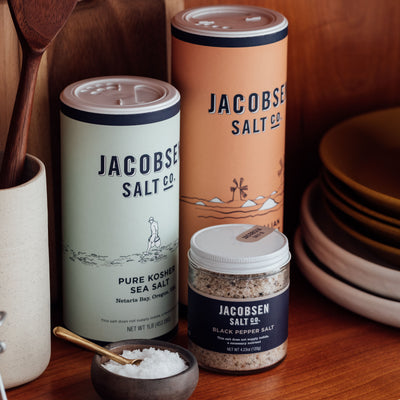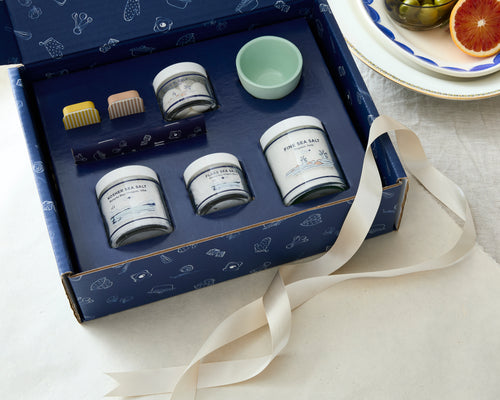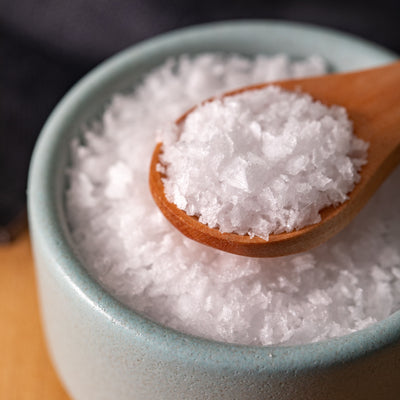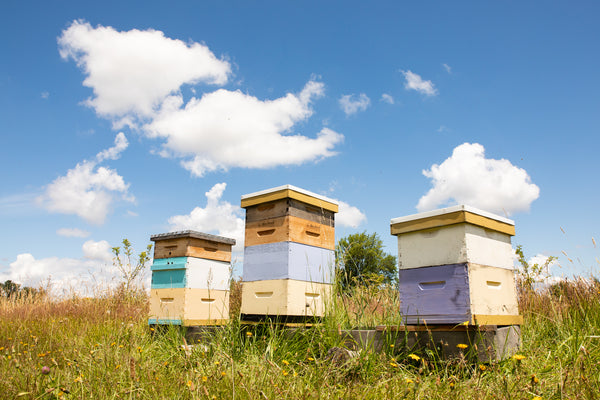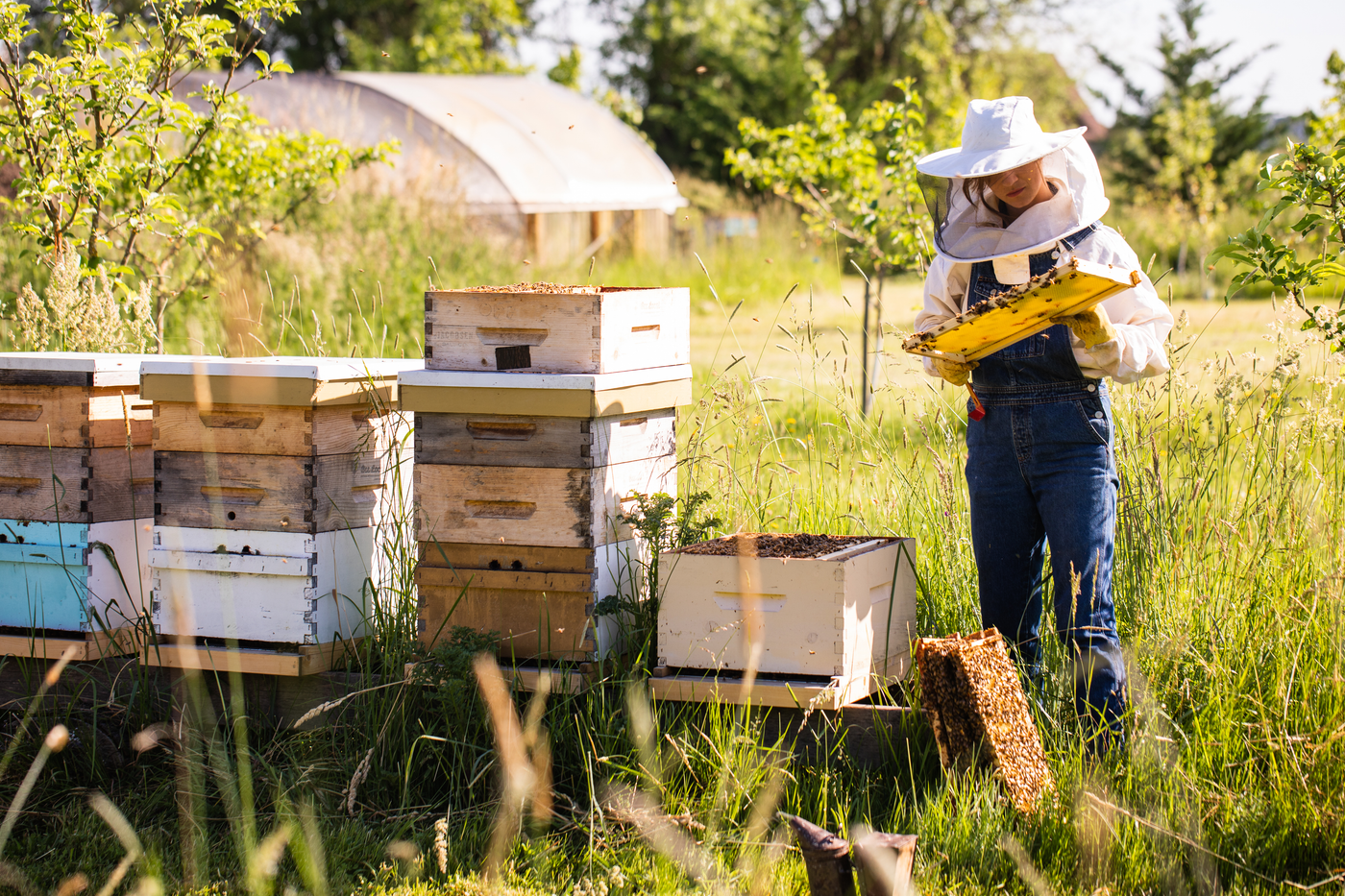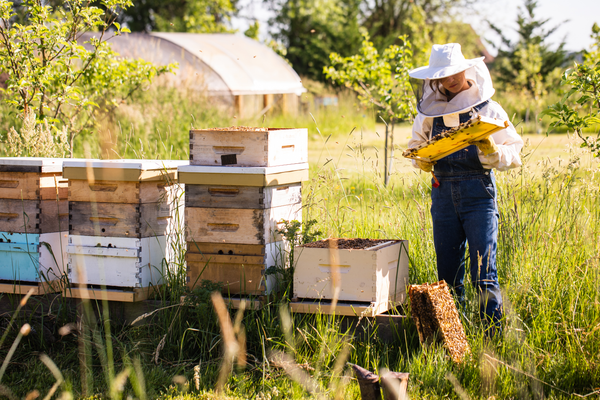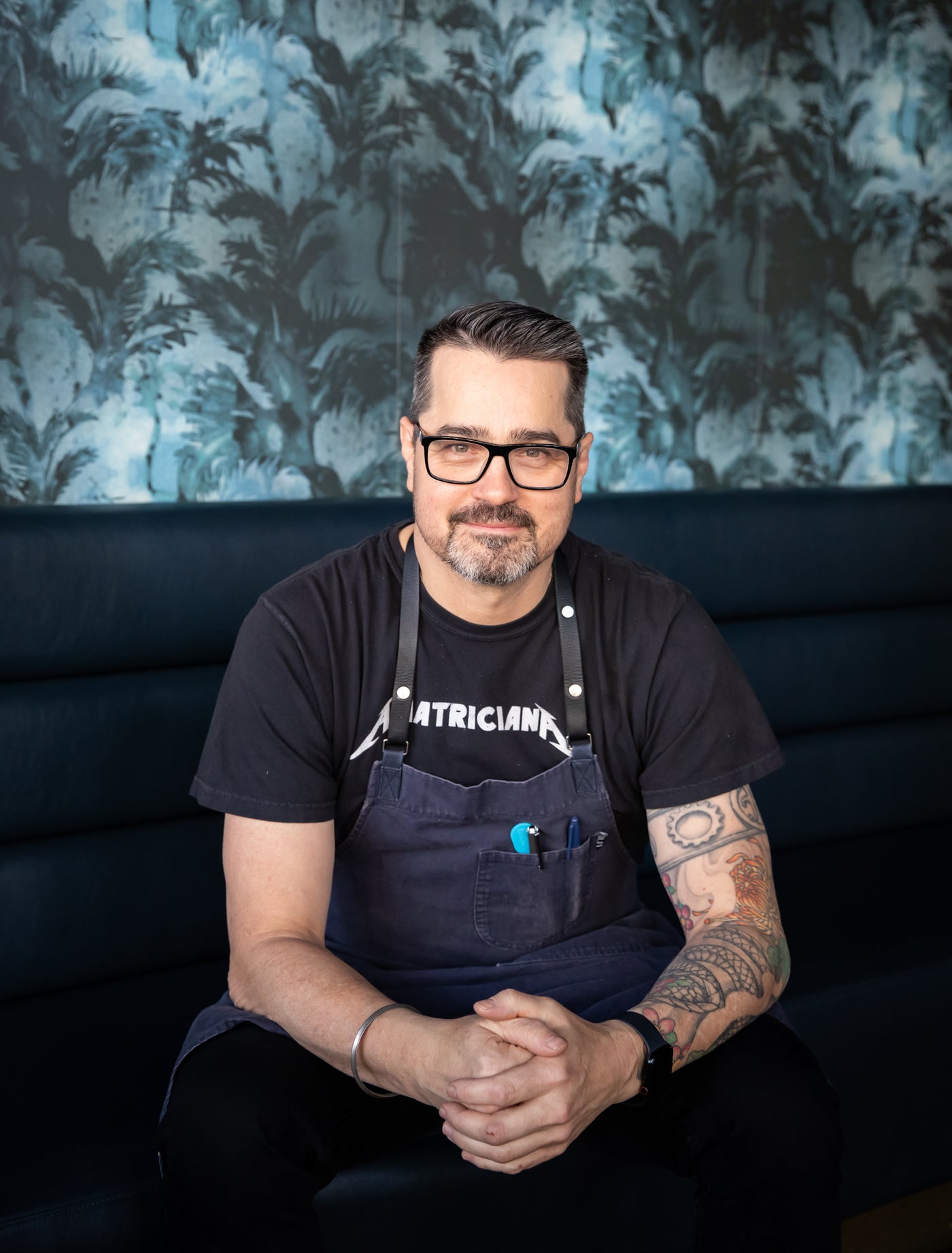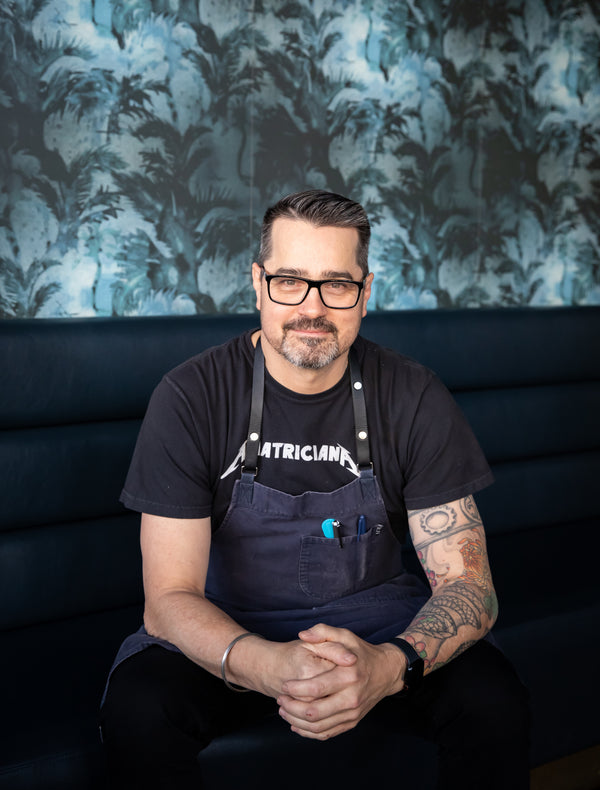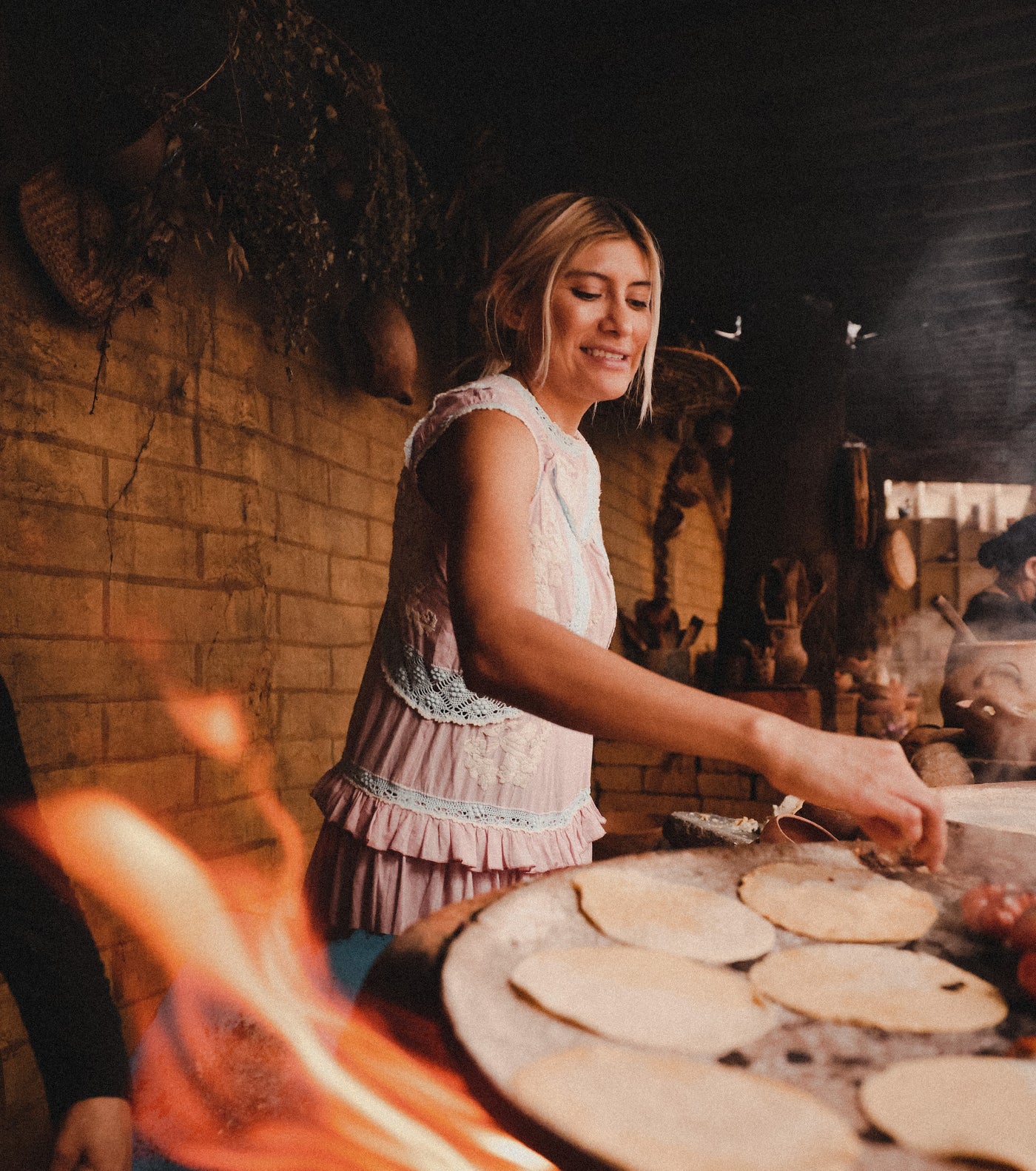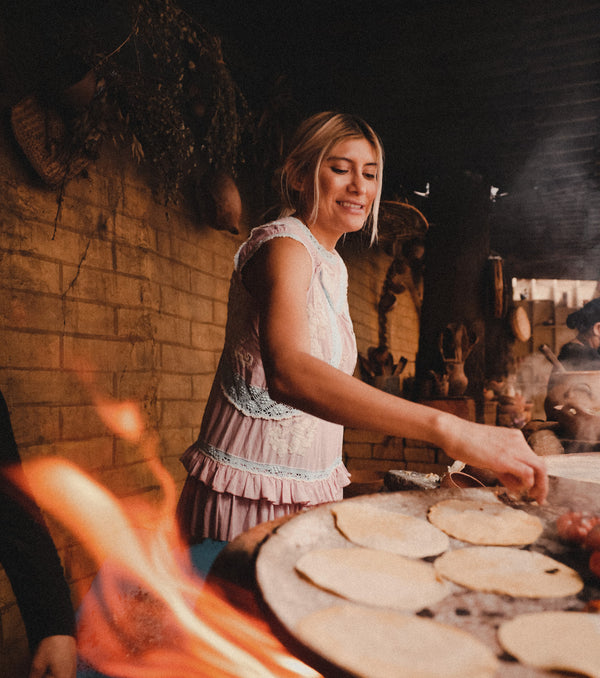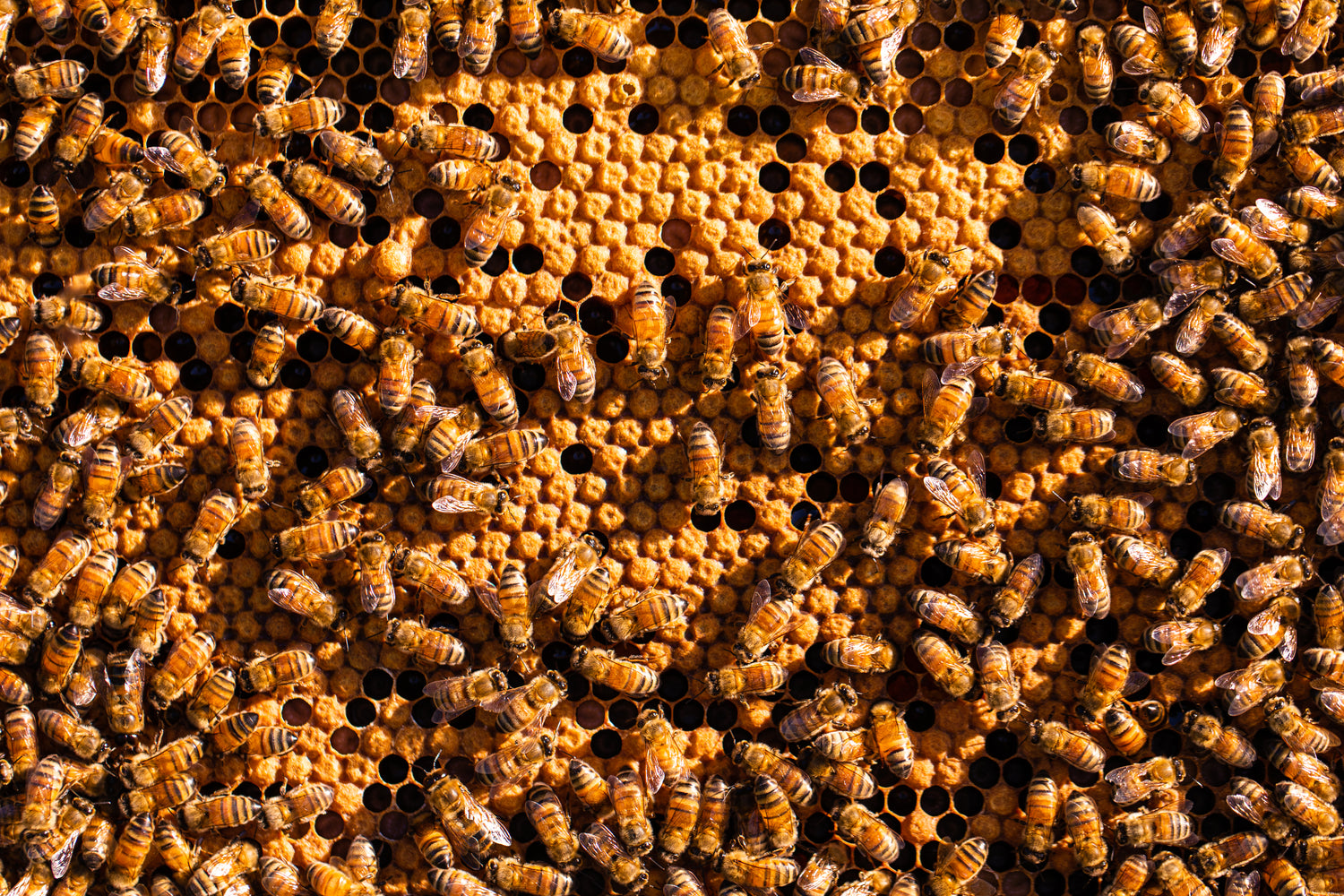
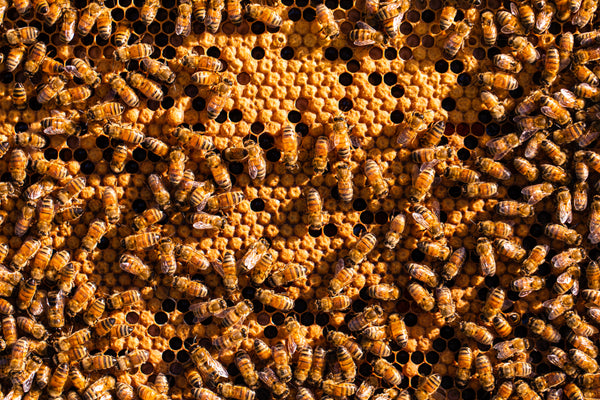
Lessons in beekeeping: An interview with Vail and Greg from The Croft farm
Posted by:
Jacobsen Salt Co.
Posted on:
Jan 19, 2021

(Emily and Greg inspecting the hives, Spring 2020. Photo Credit: Arlo Rudy)
At the end of every summer, the Jacobsen team ventures to The Croft farm on Sauvie Island, where we extract the annual microlot honey harvest from the farm's apiary. We've partnered with The Croft for about six years now, raising bees in an effort to promote biodiversity and sustainable pollination on the seven-acre farm. The honey produced from these hives has been a Good Food Awards winner since 2015, and while each year’s honey yield differs, the experience of beekeeping there continues to grow in its enchantment.
"I find that this is a place for observation, solace, research, and reflection," says Emily Schmiedel, Jacobsen's lead beekeeper. It's a miraculous site – a dynamic and healthful property, whereupon visiting, you immediately feel how much owners Vail and Greg have dedicated themselves to being stewards to this land. The Croft is wild yet kept, a wonderful home for the bees that provides organic forage of many varieties, including apples, stone fruits, flowering squash, pumpkins, and plenty of wildflowers. And because the bees travel over a vast landscape on this island, many other organic farms within a 3-mile radius also provide forage for these colonies.
What initially made you want to start a farm in Oregon? Was this a long-term plan?
I think we primarily longed to be closer to the land and nonhuman animals than life in the city allowed. And I knew only a couple things with absolute certainty: I liked to grow things and Vail and I both loved animals. We had no prior farming experience, but we hoped that once we had access to good soil, the rest of the plan would fall into place. Seven years later, I have realized that farming is not the sort of thing that may ever fall together neatly, but it’s still a lot of fun getting up every day and working amongst all of the flora and fauna. It’s humbling, but also beautiful.
What does your farm currently produce and what grows there?
Our farm was originally seven acres of sheep pasture, so it was just orchard grass and not much else. But we changed that quickly: we amended the soil and planted a few hundred fruit trees, half of which are Old World hard cider varieties from my homeland in Devon and Somerset in England, in the first year alone. We make cider for our own consumption, and we may one day expand to offer something to the public. Then we planted native hedge rows, lots of Nootka Roses and Red Flowering Currants, which are loved by the hummingbirds and the honeybees (and somehow avoid detection by the deer). We also manage two acres of Blue Crop blueberries that have been established for 30-plus years, and finally our annual rotating vegetable crops of tomatoes, peppers and eggplant, all interspersed with dollops of annual cover crops, crimson clover and phacelia. In the past two years, in addition to fruit and vegetables, we have started spinning our sheep and alpaca fiber into yarn. We now think of ourselves as a blueberry, fiber, and honey farm.

What inspired you to start keeping bees?
Well, I think it was a natural fit for us to keep bees. I love new projects and the idea of sharing in their honey seemed like a sustainable direction to go, especially since we are continually seeking new ways to practice “interspecies collaboration.” Essentially, the bees help pollinate all of our crops, especially our fruit trees, and the nectar helps sustain the bees. And then we try to be proactive agents in their lives, too, treating them for mites, supplementing their food supplies in the winter months, planting flowers and nectar-rich plants for them to eat. It is really poetic. We are always trying to find ways to work with nature, and bees are such a fabulous species, the ultimate collaborators. I mean, honeybees are keystone species, meaning they have disproportionate impact on the ecosystem. Indeed they are responsible for supporting the reproduction of upwards of 90% of flowering plants on the planet. And they are also wonderful teachers. A matriarchal society, and the only insect that we regularly eat a byproduct from? It’s all sort of revolutionary.
What role do the bees play in your farm environment?
Hosting honeybees impacts so many flora and fauna systems within a two-mile radius of our farm, from the more obvious role of hard-working pollinators, to their less visible role as insect ambassadors. Honestly, they persuade all human animals that visit our farm to understand and care a little more deeply about ‘bugs.’ And since insects more broadly are disappearing at alarming rates globally, they are a fantastic model insect to raise awareness of that enormous issue.
What is the first thing you would tell someone that is interested in keeping bees? Anything unexpected about the process?
Do it! You will not regret it. It’s actually rather addictive. I guess the emotional highs and lows of hive stewardship were the biggest surprise. I have always felt connected to animals but I never thought I would care as deeply about honeybees as I do my dog or cat. But I love them. We have had hives fail, and I feel depressed for months. And when a hive thrives, it feels so exciting and it gives me a deep sense of purpose. They really feel like nature’s underdog, who needs as many people supporting them as possible, so yes, go get some bees.

What do you enjoy most about keeping bees?
Rarely have I been so intimate with an animal’s life, let alone an insect! It truly never gets old, I still feel a thrill each time I crack open a hive. I feel connected with them, like we are all on the same team, making the world a wee bit better. Looking for a new queen, or when I am checking to see if the existing queen is laying eggs, is especially intimate, too. I guess I could say that it provides me with a sense of inner peace. I mean, when you have 10,000 bees buzzing around you, you tend to forget about everything else.
In what ways do you feel you are a steward to the bees?
The idea of connectivity to the earth we tend and care for is just an extension of the entangled relationship that one forms with a hive. When they do well, I do well. When my flowering plants do well, the bees do well, and on and on. We’re all interconnected. And a thoughtful and mutually-beneficial approach to beekeeping helps to safeguard the positive impact on all our other farm systems, especially our food systems. Actions that are harmful to one plant system are often harmful to many other creatures and critters and fauna downstream. Everything we do on the farm has to consider all of its parts, including our bees.

What are some lessons you’ve learned about yourself through farming and beekeeping? How have you grown or maybe surprised yourself?
I have certainly become more practical and less ideological, but in some ways, I suppose I have developed a healthier approach to stewardship than I once had. The more ‘perfect harmony’ model that I started up with on day one was destined to fail because I thought it would be more predictable and neater, but I think I have actually landed in a better place. Efforts to fight against perceived pests or problems to gain control just does not work unless you are prepared to head in a very dark direction. We don’t want to kill anything, so something or someone else can live. We don’t want/desire that power. We now welcome the coyotes, deer, wasps, and voles, we just hope they don’t stay too long. But ultimately, we are a part of the system, we are not the system. Basically, the ecosystem is incredibly dynamic, therefore I have learnt that my expectation needs to be, too.
Click here to learn more about the Jacobsen Co. Hive Program.

